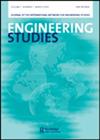Rigor/Us:Building Boundaries and Discipining Diversity with Standards of Merit
IF 1.3
3区 工程技术
Q2 EDUCATION, SCIENTIFIC DISCIPLINES
引用次数: 74
摘要
严谨是学术界应用于学科质量标准的理想质量。严谨在工程中的特殊作用为其在新近兴起的工程教育研究学科中的转移和适应创造了条件。“严格的工程教育研究”以及STEM教育中相关的“循证”研究和实践运动导致了边界绘制练习的激增,这些练习模仿了工程学科中的那些,塑造了工程教育中新知识的发展和“改进”实践。然而,严谨完成了肮脏的行为,在工程、工程教育和工程教育研究中服务于三个主要目的:纪律、划定界限和展示白人男性异性恋特权。理解了严格是如何复制不平等的,我们不能重塑它,而是必须放弃它,寻找评估知识的其他概念,欢迎不同的认识、行动和存在方式,从服从到参与,从严格到活力。本文章由计算机程序翻译,如有差异,请以英文原文为准。
Rigor/Us: Building Boundaries and Disciplining Diversity with Standards of Merit
ABSTRACT Rigor is the aspirational quality academics apply to disciplinary standards of quality. Rigor's particular role in engineering created conditions for its transfer and adaptation in the recently emergent discipline of engineering education research. ‘Rigorous engineering education research’ and the related ‘evidence-based’ research and practice movement in STEM education have resulted in a proliferation of boundary drawing exercises that mimic those in engineering disciplines, shaping the development of new knowledge and ‘improved’ practice in engineering education. Rigor accomplishes dirty deeds, however, serving three primary ends across engineering, engineering education, and engineering education research: disciplining, demarcating boundaries, and demonstrating white male heterosexual privilege. Understanding how rigor reproduces inequality, we cannot reinvent it but rather must relinquish it, looking to alternative conceptualizations for evaluating knowledge, welcoming diverse ways of knowing, doing, and being, and moving from compliance to engagement, from rigor to vigor.
求助全文
通过发布文献求助,成功后即可免费获取论文全文。
去求助
来源期刊

Engineering Studies
ENGINEERING, MULTIDISCIPLINARY-HISTORY & PHILOSOPHY OF SCIENCE
CiteScore
3.60
自引率
17.60%
发文量
12
审稿时长
>12 weeks
期刊介绍:
Engineering Studies is an interdisciplinary, international journal devoted to the scholarly study of engineers and engineering. Its mission is threefold:
1. to advance critical analysis in historical, social, cultural, political, philosophical, rhetorical, and organizational studies of engineers and engineering;
2. to help build and serve diverse communities of researchers interested in engineering studies;
3. to link scholarly work in engineering studies with broader discussions and debates about engineering education, research, practice, policy, and representation.
The editors of Engineering Studies are interested in papers that consider the following questions:
• How does this paper enhance critical understanding of engineers or engineering?
• What are the relationships among the technical and nontechnical dimensions of engineering practices, and how do these relationships change over time and from place to place?
 求助内容:
求助内容: 应助结果提醒方式:
应助结果提醒方式:


